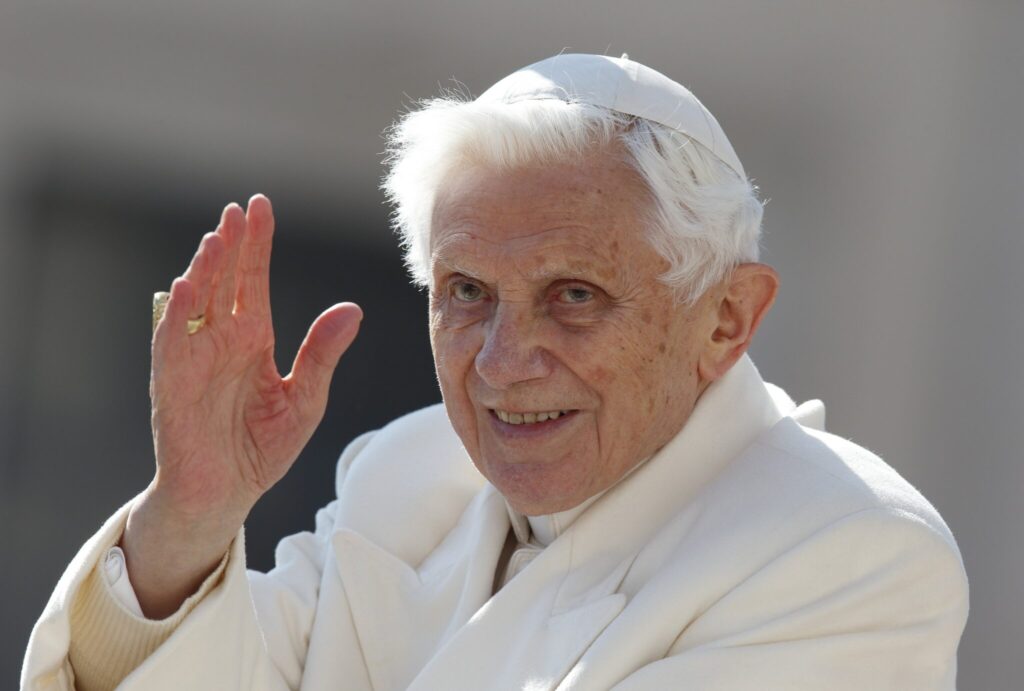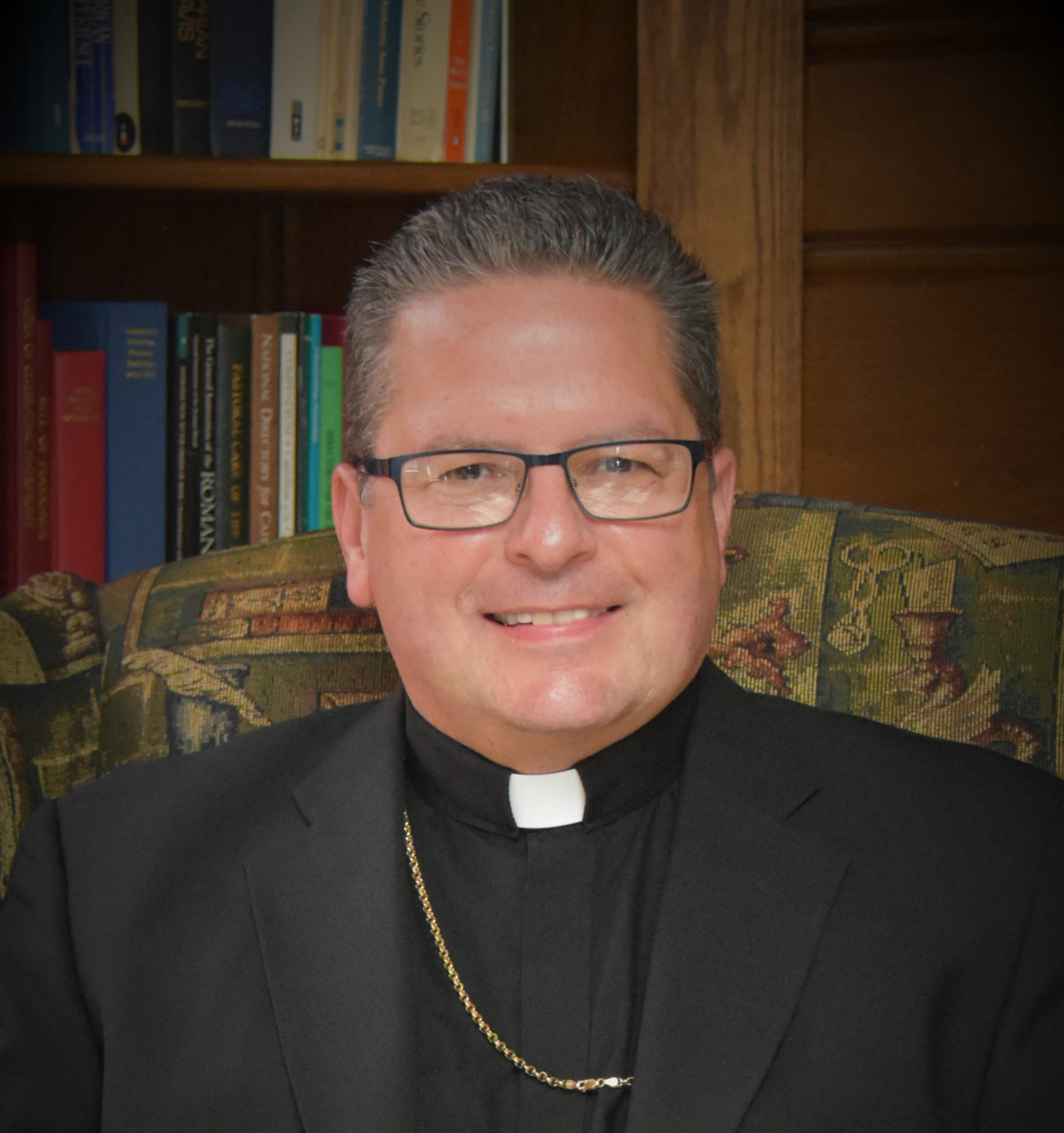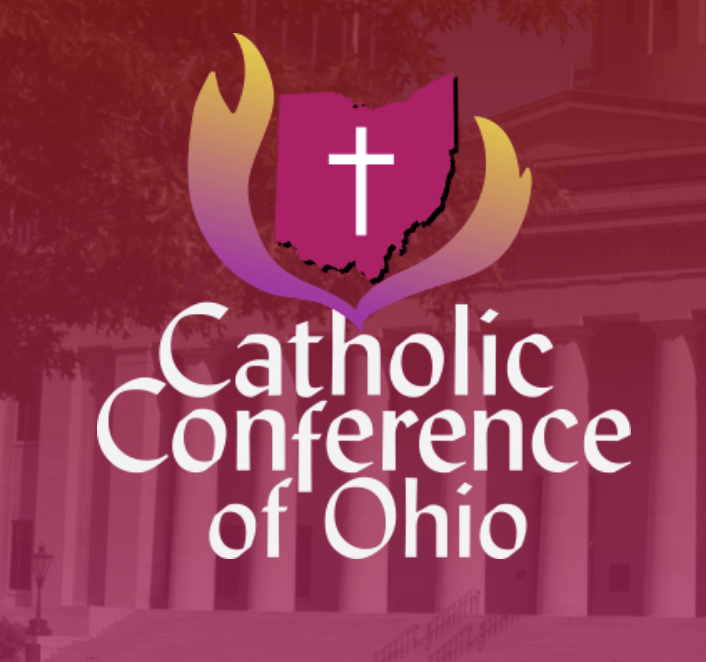Saint Paul, North Canton
Saint Columba Cathedral, Youngstown
January 3 and 4, 2023
Over these last nearly ten days, we as a Church have been celebrating the glory of Christmas and the Word made flesh which now dwells among us. These holy days reveal two essential elements of our faith. The first one is that our faith is centered in the person of Jesus who comes to save us. The second element is that this faith, which is lived out in worship and daily life, is strengthened again and again through ritual. The rituals of this divine event called Christmas are still fresh in our minds from the attendance of Holy Mass, the hearing of the Christmas proclamation, the blessing of the creche and the singing of Christmas Carols along with the family rituals and traditions that come with this time. These rituals give order, structure and inspiration to our celebration. It is hard to imagine Christmas without them, for they not only reach the depths of our hearts, but they also unite us.
Thanks be to God; the rituals of our faith are not exclusive to the Christmas season. We turn to these sacred rites throughout the liturgical year. What is more, these rituals serve as a compass for us to navigate the mysteries of life and death. The Order of Christian Funerals gives order at a disorderly time and offers words at a time when we struggle to find them.
We gather today in this church to mark the death of Pope Emeritus Benedict XVI. Of course, we are not alone in this prayer, for we are joined by the entire world, most especially the Church Universal, in these days of grieving in offering prayers and thanks for such a holy man. As the Church is united through the papacy, this unity is further enhanced through our shared prayers, acts of remembrance and participation in this sacred ritual.
It is not just the ritual of the funeral liturgy that guides us, but it is also the prayers we pray as designated by Holy Mother Church. Today, we are using the prayers for the dead for a Pope. A quick glance at these prayers reveals much about the who and what of our prayer today. For example, the Collect acknowledges that we are praying for a “successor of Peter,” the first pope and a “shepherd” of the Church. Interestingly enough, all three presidential prayers identify the deceased pope using the word “servant,” which gives credence to one of the popular titles that popes have often used to identify themselves, namely, “servant of the servants of God.” The Prayer after Communion identifies the pope as “the visible foundation of the Church’s unity.” In his life and ministry as the Vicar of Christ, Pope Benedict sought to be true to these humble descriptions.
The “what” of our prayer points to a three-fold intention. In the Collect, we ask God that Pope Benedict “may happily enjoy for ever in your presence in heaven the mysteries of your grace in compassion.” In the Prayer Over the Offerings, we pray that God may “mercifully bestow a blessed reward on Pope Benedict” and that we might receive “gifts of grace.” Finally, in the Prayer After Communion almost like a personal offering we pray that Pope Benedict “may be happily admitted to God’s blessed flock.” Implicitly within this greatest of prayers called the Holy Mass we offer thanksgiving to God for the gift of this dedicated churchman who clearly had a far reach and a huge impact on the world.
A cursory look at his life reveals some interesting items. He was born and baptized on the same day in Bavaria. This boy upon entering the world was given the name Joseph, perhaps a foreshadowing of the life of humility he would be called to embrace. He had a brother who would also become a priest. He would enter the seminary at age 12. As a teenager, he was drafted but eventually deserted the army to continue his studies for the priesthood. He would be ordained a priest and become not only a professor of theology, but truly a gifted theologian with one of the best minds in modern history. He would attend four sessions of the Second Vatican Council. He would be ordained a bishop, become the prefect for the Congregation for the Doctrine of the Faith and eventually be chosen Pope only to retire at the age of 85 to begin preparations for the final stage of his pilgrimage on earth. Pope Emeritus was a prolific writer who established the first Catholic YouTube Channel for the Vatican and was the first pope to post on twitter. He oversaw a Year of Saint Paul, a Year of Priests, and a Year of Faith. There is so much more that could be said about this man.
In the Gospel for today, we encounter Jesus reassuring the disciples and telling them not be afraid. The death of anyone can engender all kinds of emotions including fear. Jesus wants us to know that we are not to be people of fear, but of faith. In every loss in life the echo of Jesus’ voice can be heard saying, “Have faith in God. Have faith in me.” Jesus then goes on to say to his disciples, “I am the way, the truth and the life.” Jesus invites us to walk this way, he shares the truth, and he promises life.
All these realities are given to us in the Holy Eucharist. When we receive the Holy Eucharist, we become one with Jesus who is “the way, the truth, and the life.” Pope Emeritus Benedict spoke often about this relationship with Jesus in the Eucharist. To a group of young people he said, “Dear young people, the happiness you are seeking, the happiness you have a right to enjoy has a name and a face: it is Jesus of Nazareth, hidden in the Eucharist. Only he gives the fullness of life to humanity! With Mary, say your own ‘yes’ to God, for he wishes to give himself to you.”
The German pontiff not only promoted reception of the Holy Eucharist as a staple for life, but he also invited the Church to behold the power and grace of adoration. He once said, “In a world where there is so much noise, so much bewilderment, there is a need for silent adoration of Jesus concealed in the Host. Be assiduous in the prayer of adoration and teach it to the faithful. It is a source of comfort and light, particularly to those who are suffering.”
I do not think it is a coincidence, but providence, that Pope Emeritus’ death happened during the Synod on Synodality in which we are reminded of our shared pilgrimage. His final words as pontiff were: “I’m simply a pilgrim who is starting the last stage of his pilgrimage on earth.” We are all pilgrims on a journey to heaven.
Nor is it a coincidence, but sheer providence, that Pope Benedict’s death comes at the time of a Eucharistic Revival in our country when the power of this wondrous sacrament has been diminished and even disregarded. He loved the Eucharist, and it is believed that he spent his final stage of life in the silence and stillness of Adoration.
Death always presents a moment for reflection and even change in our lives. What does the death of this ecclesial giant mean for us? What can we take away from his life that will deepen our faith and inspire our respective ministries? No doubt this is a question for us all to ponder in our prayer.
The question might well yield answers like “the value of humility,” “the need to see our lives as a pilgrimage to heaven,” and “the absolute imperative of the Eucharist and a relationship in our lives” for as the Holy Father stated once, “Without the Eucharist, the Church simply does not exist.”
There is one more compelling answer to that question found in the Episcopal Motto of Pope Emeritus Benedict. Mottoes for bishops are like personal mission statements. Pope Benedict’s Motto was “Cooperators of the Truth.” Pope Benedict was passionate and intentional about the Truth which he lived for and found in the person of Jesus.
May his death and our celebration of his life in this powerful ritual reawaken us to the grace of humility, remind us that we are all pilgrims on a journey to heaven, sustained by the food and presence of Holy Eucharist committed unwaveringly to being “cooperators of the truth.” Eternal Rest grant unto him O Lord, and let the perpetual light shine upon him. May his soul and all the souls of the faithful departed through the mercy of God rest in peace. Amen.



